- Faith ⬦ Read ⬦ Shabbat ⬦ Weekly Torah Portion
You’re Capable of Much More – Parshat shalach
Hashem places obstacles in our path in order to increase our desire so that we will be better able to recognize the greatness and importance of that what we are yearning for. If we throw in the towel and give in, we will lose out, but if we believe in our own power and persevere to the end, there is no goal we can’t reach, even in Heaven! This is the message of this week’s parshat hashavua.
This week’s Torah portion is called parshat “Shalach.” The central topic of the parsha is the story of the spies who were sent to discover the weak point from where it would be advantageous to enter the Land of Israel, but instead they spoke disparagingly about the land. They incited the people of Israel against G-d and were punished by having to die in the desert. The main message of this week’s parsha is that we need to have simple faith and also believe in or own abilities, as we will see below.
First of all, we will set the background for the most dramatic and horrific event which caused one of the greatest disasters ever for the Jewish people, and I am not trying to be dramatic here. Our sages determined that the destruction of both the Temples, both the First Temple and the Second Temple, were destroyed as a result of the sin of the spies. Therefore, it is important that we understand well the significance of what they did.
First of all, the facts: The story of the spies took place in the second year of their stay in the desert. During the first year after leaving Egypt, they received the Torah and also sinned with the Golden Calf. Moses went up to the Heavenly realms to implore G-d to forgive them. On Yom Kippur, G-d accepted his plea and also commanded the people to build the Mishkan (Tabernacle). On the first of Nissan of the second year, the Mishkan was erected, and that same summer the Nation of Israel was about to enter the Land of Israel (according to Rashi, Numbers 10:33). At this point, the people turned to Moses and asked him to send men out to spy out the land. Moses sent the spies, but he didn’t ask them to analyze the practicality of their objective. He simply asked them to spy out the land and to inform him and the entire nation of the best way to conquer it.
This is where a terrible mistake happened. The spies acted on their own, not as messengers of Moses, but rather they decided to give their own analysis of the situation. They gave over the information according to their own personal experience, as the Torah recounts: “They gave this report: ‘We came to the land that you sent us to. Indeed, it is flowing with milk and honey, and here are some of its fruits. However, the people who inhabit the land are mighty, and the cities are extremely huge and fortified, and there we saw even the offspring of the giant. Amalek dwells in the area of the Negev. The Hittites, the Jebusites and the Emorites are settled on the mountain. The Canaanites dwell by the sea and on the banks of the Jordan’” (Numbers 13:27-29).
Caleb the son of Jefuneh and Joshua the son of Nun were also among the spies, but their impressions were different than the others. Caleb believed the words of Moses with absolute faith, and he confronted the spies and proclaimed to all the people: “We can surely go up and take possession of it, for we can indeed overcome it.” (Ibid 13:30). Rashi explains the phrase as: “We can surely go up: even to heaven; if he tells us, ‘Make ladders and go up there,’ we will succeed in whatever he says.”
The spies did not give up and succeeded in undermining the people’s confidence in their ability to defeat their enemies who dwelled in the Land of Israel. As The Torah relates: “But the men who went up with him said, ‘We are unable to go up against the people, for they are stronger than we’” (Ibid 13:31). The Torah then describes the bitter despair that spread throughout the people: “The entire community raised their voices and shouted, and the people wept on that night” (Ibid 14:1).
“That night” was the night of Tisha B’Av. The whole nation cried for no reason, without any justification. Our sages teach us that this dreadful crying was not left in a vacuum: “You cried for no reason, and so I will make you cry for generations” (Ta’anit 29a). The destruction of the First and Second Temples occurred on Tisha B’Av, as well as the expulsion from Spain some 500 years ago. And unfortunately, this is also true in our generation: the expulsion of the Jews from Gush Katif about fifteen years ago also began on Tisha B’Av. All this was because of “a few words” that the spies said. It was a terrible disaster.
The spies acted on their own, not as messengers of Moses, but rather they decided to give their own analysis of the situation. This is where a terrible mistake happened!
Think about it: this was absolutely tragic! What exactly happened? A bit of crying? Why is this mistake considered so grave that so many generations later we are still suffering because a few thousand years ago the Nation of Israel cried in the desert? What really happened here?
We will see the explanation in the words of Caleb when he pleaded with the people a second time, telling them: “If the Lord desires us, He will bring us to this land and give it to us, a land flowing with milk and honey. But against the Lord, do not rebel…”(Numbers 14:8-9).
Rebellion! The spies claimed, “We are unable to go up against the people, for they are stronger than we!” This may also be interpreted as, “they are stronger than He.” Rashi explains that “They said this in reference to the most High, as it were, as if to say that the people [giants in the land] are stronger than He.” This is rebellion!
Caleb claimed to the people: “Is this the only thing the son of Amram has done for us?…Didn’t he split the sea for us, bring down the manna for us, and cause the quails to fly down to us?” (Rashi 13:31). That is, the whole people saw great miracles: the Exodus from Egypt, the Splitting of the Sea, the manna coming down every day in the desert for a few million people, unlimited amounts of water coming out of the rock every single day, their clothes didn’t wear out, and they were protected by the Clouds of Glory in a pleasant and heavenly environment without any worries at all. Does it make any sense that the one that preformed all these miracles could not be trusted to fulfill his promise and to bring them to the Land of Israel?
How did the spies make this mistake?
Here we come to one of the most important issues in Judaism: Freewill.
Let us first recognize that this matter is the highest concept in creation. Everything that exists in the world was created to enable freedom of choice. Everything exists only to reveal the Will of the Creator. A person’s freewill is what motivates him to choose good and to reveal the Creator’s Will.
The whole advantage that man has over the angels and heavenly beings is that only he has the power of choice which comes from having freewill. Only man has freewill. It is therefore clear that the world was created for man so that he would strive with his freewill to fulfill the Creator’s Will. This can only be done by man, and not by angels nor heavenly beings.
Rebbe Nachman teaches that there are ever increasing levels of understanding the Creator, and the higher and more important the concept, the greater the difficulties and delays are in reaching the desired understanding. These are known as “preventions. In other words, the difficulties and the obstacles are a means to try to prevent a person from reaching that which he wants: spirituality.
Paradoxically, the “obstacles” are not intended to actually keep a person away from the understanding of G-d that he is striving for. On the contrary, they were created specifically to challenge the person’s desire so that he would try harder and strive even more to achieve the understanding he is trying to attain, despite the difficulties.
It is important to clarify a number of points. A person is not given a test that he is incapable of passing. Therefore, all the obstacles are placed before him so that he should come to appreciate the greatness of what he is trying to achieve. The more difficulties a person encounters, the clearer it should be for him that this is a sign that his goal is much more significant than it appears and that it is worthwhile for him to make more efforts to reach this goal. If he will be stubborn, in the end he will succeed, because the preventions are intended solely to increase his desire to overcome the difficulties despite everything.

The whole advantage that man has over the angels and heavenly beings is that only he has the power of choice which comes from having freewill.
Rabbi Nachman explains this in a simple parable: When you clench something in your hand to hide it from a small child, what happens? It is clear that the child will demand to see what is in your hand. This is implied in the verse: “Bread eaten in secret is pleasant” (Proverbs 9:17). When something is kept from a person, he develops an increased desire for it. This is the reason that a person has an evil inclination for sin: since the sin is something forbidden for him, he has an increased desire for it. Similarly in holiness, when a person is prevented by obstacles, his desire for that thing increases. It is important to remember that the prevention exists only to increase his desire and not actually stop him from reaching his goal (Likutey Moharan, 66:4)
The same is true when it comes to the Land of Israel, which is the source of the Will (“ratzon”) as we see in Psalms (85:2): “G-d, You have desired (“ratziti”—from the same root as “ratzon”) Your land.” Also when the land was divided amongst the tribes, the Torah mentions the power of one’s will: “Naftaly is favorably satisfied (“sova ratzon” – literally, “his will is fulfilled”). And as is known, the personal blessings to each of the brothers were intended to extend to all the tribes (see Rashi on Genesis 39:28).
Let us now return to our parsha: The spies went up to Eretz Israel and returned with large and beautiful fruit. They summarized the advantages and disadvantages: “And these are its fruits.” The fruits are large, and this demonstrates the power of the Will in the Land of Israel, as mentioned earlier. But in the same breath, they emphasized the obstacles: “However, the people who inhabit the land are mighty.” They put the obstacles at the top of the list, as if the preventions were stronger than power of their will.
This is a rebellion against G-d’s Will. G-d bestows upon a person the ability but then sends him obstacles because He wants the person to overcome them and reach his goal. The spies denied that the people had the ability to overcome the obstacles (no freewill in this situation). It was if they had said that there was no purpose in the creation of man in the world. This is how they caused crying for generations. When the concealment is powerful, it overshadows that revelation of Will and causes destruction of the Temples.
The truth, of course, is the exact opposite. There is nothing that stands against one’s will. The will is stronger than all the obstacles in the world. Joshua the son of Nun and Caleb son of Jefuneh merited to stand in the test and to strengthen themselves against the obstacles and say “We can surely go up and take possession of it, for we can indeed conquer it.” We can go up to the land. There is no prevention that we can’t overcome! As Rashi put it: “If he tells us, ‘Make ladders and go up there,’ we will succeed in whatever he says.” This is because, as we stated, when they have the power of will there is no obstacle that can prevent him from succeeding in reaching their goal. Even if he were to want to go up to heaven, with the power of the will, he would find a way to do it and would reach his goal.
There is nothing that can stand in the way of one’s will!
(Based on Likutei Halachot, Bircat HaPeirot 5:7)
- Caleb the son of JefunehcryingDvar Torah for Parshat ShelachExodus of EgyptfaithFreewillJoshua the son of Nunland of Israellife's challengesLikutey HalachotLikutey MoharanMoshe and YehoshuaobstaclesParshat shalachParshat ShelachratzonReb NosonRebbe NachmanrebellionshelachSpiesThe Holy TempleTisha b’AvTzaddikimWeekly Torah Portion
- 1 comment




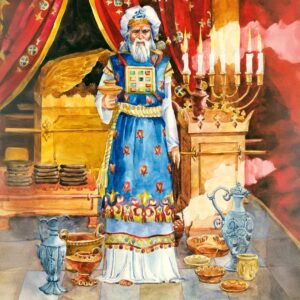




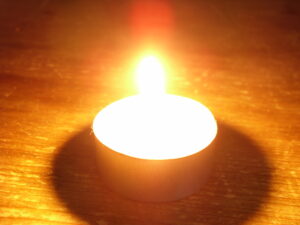
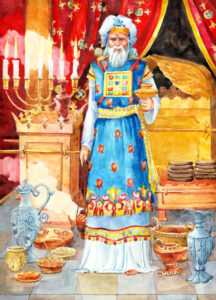
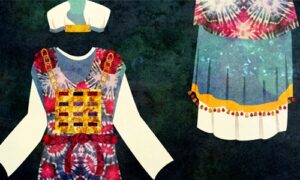
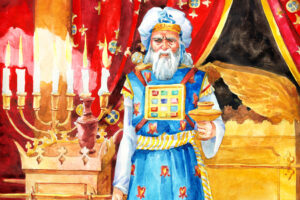










One Response
“There is nothing that can stand in the way of one’s will!”
Wonderful article, and I greatly appreciate the efforts of the author. I would add that the above line, from the end of the article, is true as long as we have tried, to the best of our ability, to align ourselves with God’s will. When it is my will vs. God’s will, His will prevails every time.